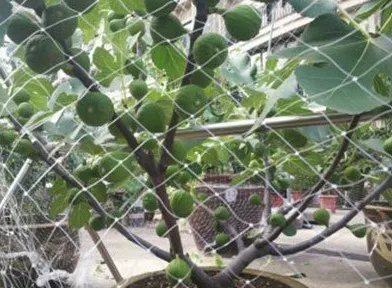-
 Afrikaans
Afrikaans -
 Albanian
Albanian -
 Amharic
Amharic -
 Arabic
Arabic -
 Armenian
Armenian -
 Azerbaijani
Azerbaijani -
 Basque
Basque -
 Belarusian
Belarusian -
 Bengali
Bengali -
 Bosnian
Bosnian -
 Bulgarian
Bulgarian -
 Catalan
Catalan -
 Cebuano
Cebuano -
 China
China -
 Corsican
Corsican -
 Croatian
Croatian -
 Czech
Czech -
 Danish
Danish -
 Dutch
Dutch -
 English
English -
 Esperanto
Esperanto -
 Estonian
Estonian -
 Finnish
Finnish -
 French
French -
 Frisian
Frisian -
 Galician
Galician -
 Georgian
Georgian -
 German
German -
 Greek
Greek -
 Gujarati
Gujarati -
 Haitian Creole
Haitian Creole -
 hausa
hausa -
 hawaiian
hawaiian -
 Hebrew
Hebrew -
 Hindi
Hindi -
 Miao
Miao -
 Hungarian
Hungarian -
 Icelandic
Icelandic -
 igbo
igbo -
 Indonesian
Indonesian -
 irish
irish -
 Italian
Italian -
 Japanese
Japanese -
 Javanese
Javanese -
 Kannada
Kannada -
 kazakh
kazakh -
 Khmer
Khmer -
 Rwandese
Rwandese -
 Korean
Korean -
 Kurdish
Kurdish -
 Kyrgyz
Kyrgyz -
 Lao
Lao -
 Latin
Latin -
 Latvian
Latvian -
 Lithuanian
Lithuanian -
 Luxembourgish
Luxembourgish -
 Macedonian
Macedonian -
 Malgashi
Malgashi -
 Malay
Malay -
 Malayalam
Malayalam -
 Maltese
Maltese -
 Maori
Maori -
 Marathi
Marathi -
 Mongolian
Mongolian -
 Myanmar
Myanmar -
 Nepali
Nepali -
 Norwegian
Norwegian -
 Norwegian
Norwegian -
 Occitan
Occitan -
 Pashto
Pashto -
 Persian
Persian -
 Polish
Polish -
 Portuguese
Portuguese -
 Punjabi
Punjabi -
 Romanian
Romanian -
 Russian
Russian -
 Samoan
Samoan -
 Scottish Gaelic
Scottish Gaelic -
 Serbian
Serbian -
 Sesotho
Sesotho -
 Shona
Shona -
 Sindhi
Sindhi -
 Sinhala
Sinhala -
 Slovak
Slovak -
 Slovenian
Slovenian -
 Somali
Somali -
 Spanish
Spanish -
 Sundanese
Sundanese -
 Swahili
Swahili -
 Swedish
Swedish -
 Tagalog
Tagalog -
 Tajik
Tajik -
 Tamil
Tamil -
 Tatar
Tatar -
 Telugu
Telugu -
 Thai
Thai -
 Turkish
Turkish -
 Turkmen
Turkmen -
 Ukrainian
Ukrainian -
 Urdu
Urdu -
 Uighur
Uighur -
 Uzbek
Uzbek -
 Vietnamese
Vietnamese -
 Welsh
Welsh -
 Bantu
Bantu -
 Yiddish
Yiddish -
 Yoruba
Yoruba -
 Zulu
Zulu
Agro Nets - Innovative Solutions for Agriculture
The Importance and Impact of Agro Nets in Modern Agriculture
In recent years, the agricultural sector has witnessed a significant transformation, largely due to advancements in technology and innovative farming practices. One such development that has gained prominence is the use of agro nets, also known as agricultural nets or shade nets. These specialized nets play a crucial role in enhancing crop yield, protecting plants, and promoting sustainable farming practices.
Agro nets come in various types, each designed for specific agricultural needs. The most common varieties include shade nets, insect nets, and bird nets. Shade nets are primarily used to provide protection against harsh sunlight, thereby reducing plant stress and improving growth conditions. They create a microclimate that helps in maintaining optimal temperatures and humidity levels, which is essential for the growth of delicate crops, especially in regions with extreme weather conditions.
Insect nets, on the other hand, serve as a barrier against pests and insects. These fine mesh nets prevent harmful insects from accessing crops, reducing the need for chemical pesticides. This not only protects the plants but also contributes to the overall health of the ecosystem by minimizing chemical runoff into the soil and water bodies. Additionally, insect nets can help in attracting beneficial insects, such as pollinators, ensuring a balanced agricultural environment.
Bird nets are another type of agro net that protects crops from birds and other wildlife that might otherwise feast on the harvest. By using bird nets, farmers can safeguard their fruits and vegetables from being eaten or damaged, thus preventing economic losses and ensuring better yields.
agro nets

The benefits of using agro nets extend beyond mere protection
. They also contribute to water conservation and efficient resource management. By minimizing evaporation and maintaining soil moisture, agro nets can significantly reduce water consumption, which is particularly important in arid regions where water scarcity is a pressing issue. This efficiency leads to more sustainable farming practices and contributes to the overall goal of food security.Moreover, the use of agro nets aligns with the principles of precision farming. With the ability to monitor and manage environmental conditions closely, farmers can make informed decisions about irrigation, fertilization, and pest control. This targeted approach not only enhances crop productivity but also reduces waste and environmental impact.
In terms of economic benefits, agro nets can lead to higher profit margins for farmers. By ensuring better crop health and yield, farmers are likely to enjoy increased sales and reduced losses from pests and adverse weather. The initial investment in agro nets can yield substantial returns, making them an attractive option for both smallholder and commercial farmers.
In conclusion, agro nets represent a valuable tool in modern agriculture. They offer a multifaceted solution to various challenges faced by farmers, from pest control to water conservation. As the demand for sustainable and efficient farming practices continues to grow, the adoption of agro nets is likely to increase, playing a pivotal role in the future of agriculture. By leveraging technology and innovation, farmers can enhance productivity and sustainability, ensuring a stable food supply for the world’s ever-growing population. As we move forward, embracing agro nets could be key to addressing the pressing challenges of 21st-century agriculture.
-
Shipping Plastic Bags for Every NeedNewsJul.24,2025
-
Safety Netting: Your Shield in ConstructionNewsJul.24,2025
-
Plastic Mesh Netting for Everyday UseNewsJul.24,2025
-
Nylon Netting for Every UseNewsJul.24,2025
-
Mesh Breeder Box for Fish TanksNewsJul.24,2025
-
Expanded Steel Mesh Offers Durable VersatilityNewsJul.24,2025











